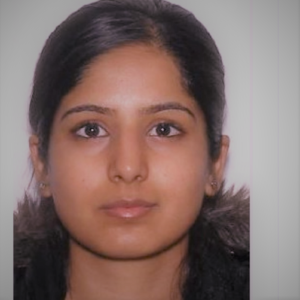Remembering Zabia Afzal
June 22/2018
By: Nanky Rai, Mythri Vijendran, Priya Nadarajan, Sadia Khan, Binny Gahir, Gayathri Naganathan and Tanzina Islam — MPH-Health Promotion Alumnae
We are deeply saddened to learn of the passing of Zabia Afzal, MPH-Health Promotion  graduate from the DLSPH who went missing one month ago. Zabia was a brilliant student, wonderful friend and colleague and a community organizer dedicated to social justice. Zabia had a tremendous impact on her peers and regularly challenged them to think critically about themselves, their surroundings and the ways in which systems of oppression created injustices. She strengthened the capacity of others to break barriers and speak out against local and global issues. The following are a few areas where Zabia shone her light:
graduate from the DLSPH who went missing one month ago. Zabia was a brilliant student, wonderful friend and colleague and a community organizer dedicated to social justice. Zabia had a tremendous impact on her peers and regularly challenged them to think critically about themselves, their surroundings and the ways in which systems of oppression created injustices. She strengthened the capacity of others to break barriers and speak out against local and global issues. The following are a few areas where Zabia shone her light:
Engaging in Public Health Social Justice Collaborative:
Zabia was instrumental in reinvigorating the Public Health Social Justice Collective at the Dalla Lana in 2010. She worked closely alongside other members to organize reading groups, film screenings, and events. She supported in the intellectual growth of so many members and the public health community at large by organizing critical discussions on Palestine and on the role health workers needed to play in political activism.
Community organizing in Thorncliffe:
Zabia mobilized community action against oppressive policies in support of working class residents of Thorncliffe Park, a neighbourhood in Central East Toronto. She organized community events to support tenants in advocating for their housing rights. Zabia was also passionate about fighting against gendered violence and organized Thorncliffe Reach-Out Teach-In, a grassroots community organization that prioritized building the collective power of migrant Muslim women in standing up against Islamophobia.
Highlighting the role of health workers in political activism:
Throughout Zabia’s academic and organizing work, she understood that health inequities could not be addressed in isolation from the larger injustices of a capitalist society. As such, health workers, for her, could not merely be progressive in how they practiced their profession. They must be oriented to organize working class communities against the exploitation and oppression of capitalism. She firmly believed that only with this commitment could health professionals make themselves relevant to the struggles of those they serve.
On a personal level: she always made her friends laugh, provided a supportive shoulder when needed and shared so much strength and knowledge. She was brilliant yet humble, strong and resilient, and never backed down when she was speaking out against injustice. She has impacted many lives in unmeasurable ways, as such, Zabia’s presence will always be felt.